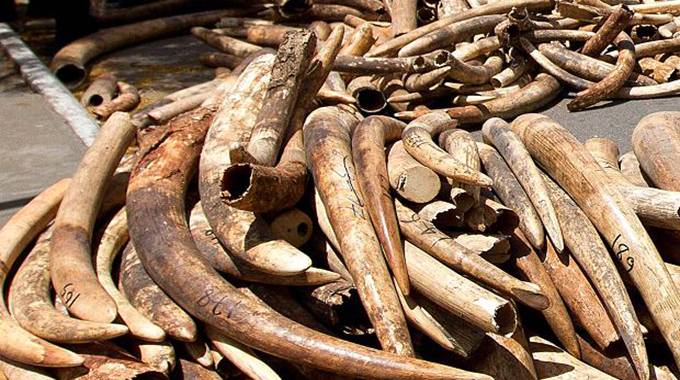
Emmanuel Koro
AN outpouring international offers was made last week to help the elephant over-populated Sadc countries successfully establish an independent international ivory trading body, without being controlled by the UN wild trade regulating agency CITES.
Powerful, experienced and well-schooled ivory experts from China, the USA and Europe said via e-mails that they are ready to meet the ministers of environment of Botswana, Namibia, Zambia and Zimbabwe and help them establish and run an independent international ivory trading body without being controlled by the UN Convention on International Trade In Endangered Species of Wild Fauna and Flora (CITES).
These written offers are strictly confidential with experts not willing to have their names disclosed to the media.
A minister from one of the four elephant over-populated Sadc countries has already shown great interest in the offers made by the international ivory trade experts.
The offers to help Sadc countries market their ivory internationally, follow a recent virtual meeting held by ministers of environment of Botswana, Namibia, Zambia and Zimbabwe that discussed the setting up of an independent international ivory trading body without being controlled by the CITES.
“Our views on this subject are well known,” said one of the international ivory trade experts in an e-mail sent to the other international experts last week.
“We fully support, endorse and promote the potential sale of ivory and rhino horn stocks in Southern Africa. We dream of the day it will happen.
“However nothing will happen without a potential buyer at the end of the trade, in other terms, a country ready to import.
“For exportation to happen, the Southern African countries must undertake diplomatic and political negotiations with a potential importing destination, to ensure its ability and willingness to accept the importation of the exported CITES specimens. We shall fully support any action taken in that sense.”
Another expert said that his organisation “stands ready to apply its political perspective” on the ivory market issue to keep the momentum going.
African ivory trade experts will also be working together with their counterparts from the USA, China and Europe in their bid to assist the African countries to identify ivory markets.
Under the CITES reservations trade regulations, Botswana, Namibia, Zambia and Zimbabwe are prohibited from selling ivory to CITES member countries.
However, they are permitted to sell to countries that are not members of CITES. This is where the big search for ivory markets begins and this is where international ivory trade experts have offered their assistance.
The Democratic People’s Republic of Korea [North Korea] and Andorra are some of the countries that are not members of CITES.
*Emmanuel Koro is a Johannesburg-based international award-winning independent environmental journalist who writes and has written extensively on environment and development issues in Africa.
